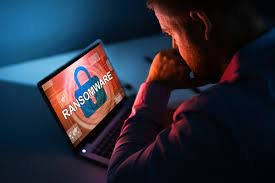As ransomware cases increment, digital hoodlums quite often ask for and get instalments in cryptographic forms of money like Bitcoin. The world's biggest meat provider, JBS, reported on Wednesday that it paid programmers $ 11 million in bitcoin in a new ransomware assault.
.jpg)
The issue has since quite a while ago engrossed burglars and medication bootleggers: How would you ship and shroud tremendous amounts of badly gotten benefits without getting captured?
In the previous few years, ransomware programmers have thought of a practically amazing arrangement – digital currencies like Bitcoin. It's quick. It's simple. Best of all, it is to a great extent mysterious and hard to find.
In the latest model, the world's biggest meat processor, JBS, reported on Wednesday evening that it as of late paid $ 11 million in Bitcoin after a cyberattack constrained its plants to shut in the US, Canada and Australia. The FBI censures a Russian group of thugs for the assault.
.jpg)
"You presently can move a huge number of dollars’ worth of digital forms of money across public lines like a flash," said Yonatan Striem-Amit, fellow benefactor of Cybereason, a Boston-based organization that gives assurance from programmers.
"It truly is an extremely useful asset in the possession of hoodlums for laundering cash and moving monetary standards starting with one state then onto the next in a manner that is somehow or another imperceptible and unquestionably wild."
As of not long ago, a large part of the cybercrime included the robbery of individual Mastercard’s or limited scope ledgers.
"If we somehow managed to discuss this two years prior, we wouldn't discuss Bitcoin as the dominating type of payment instalment," said Hitesh Sheth, leader of network protection organization Vectra in San Jose, California.
Large instalments, little danger
Bitcoin and other digital currencies made it conceivable to blackmail enormous payoff cash from huge organizations, clinics and regional authorities. Furthermore, when the digital cheats live in nations like Russia – which many do – there is essentially zero chance of getting captured.
Incidentally, the trading of cryptographic forms of money happens in purported "public records".
That implies anybody can watch on the web. In any case, the gatherings to an exchange are unknown, masked with an arbitrary number.
"You can see precisely how the cash streams starting with one location and one wallet then onto the next," said Striem-Amit of Cybereason. "Notwithstanding, it is extremely unlikely for us to connect one individual with these wallets. Numerous individuals have one location, one wallet, however handfuls, hundreds."
This permits programmers to move the cash starting with one unknown record then onto the next again and again. That makes it exceptionally troublesome – if certainly feasible – to follow.
Think about the instance of the Colonial Pipeline, which was hacked last month and slowed down fuel supplies in the eastern United States for the greater part of seven days.
The Justice Department declared for the current week that the FBI has gotten back the greater part of the $ 4.4 million payment that Colonial paid to the programmers known as Dark Side, accepted to be situated in Russia.
This case denoted a significant forward leap. The Justice Department said this was the first run through a team managing ransomware could recover a portion of the cash.
An exemption
In any case, it's improbable that this will turn into the standard at any point in the near future. The FBI put assets in the Colonial case since it was a high-profile assault that disabled a pipeline that was fundamental to the nation's economy.
The FBI won't give such countless assets to each ransomware assault. What's more, the cases are hard to settle.
As per court records, the FBI managed a labyrinth of in excess of 20 digital currency records to discover the programmers. At the point when the record was discovered, the workplace moved for a U.S. court request to seize the assets.
In any case, then, at that point comes the genuine mystery. Even after the FBI found the PC and had the court request, the workplace actually required the mysterious encryption key to open the record and catch the bitcoin.
The FBI didn't say how it did it, and this has started far reaching hypothesis and various potential situations in the network protection local area.
The FBI doesn't suggest emancipate instalments. In any case, the choice rests with the organization or establishment concerned, and many trust it is smarter to pay and refocus than to remain shut and go through long exchanges with the programmers.
Privately owned businesses are presently acknowledging they need to zero in additional on the ransomware danger.
"Digital security has become a hotly debated issue for corporate sheets as of late," said Hitesh Sheth of Vectra. "It's not just about online protection, as, 'Hello, how might I stop assaults?' It truly boils down to the inquiry "what is our ransomware methodology". It has gotten unmistakable. "
Payment protection
Payment requests and instalments have soar.
"We have now seen recover instalments in abundance of $ 10 million from our clients, with cases of $ 40, 50 and 60 million," said Oren Wortman, who chips away at digital issues for insurance agency Beecher Carlson.
Some insurance agencies at this point don't cover ransomware or force various limitations, he added.
"There are safety net providers who don't compose any new business no matter how you look at it," he expressed. "There are safety net providers who are leaving business. What's more, there are safety net providers who are totally closing out medical care, the public area and the scholarly world," these are normal targets.
Amidst these turns of events, the Biden government and a few individuals from Congress are beginning to discuss directing digital forms of money. Be that as it may, that far talk.